Labels: An interview with Joe Sellman-Leava
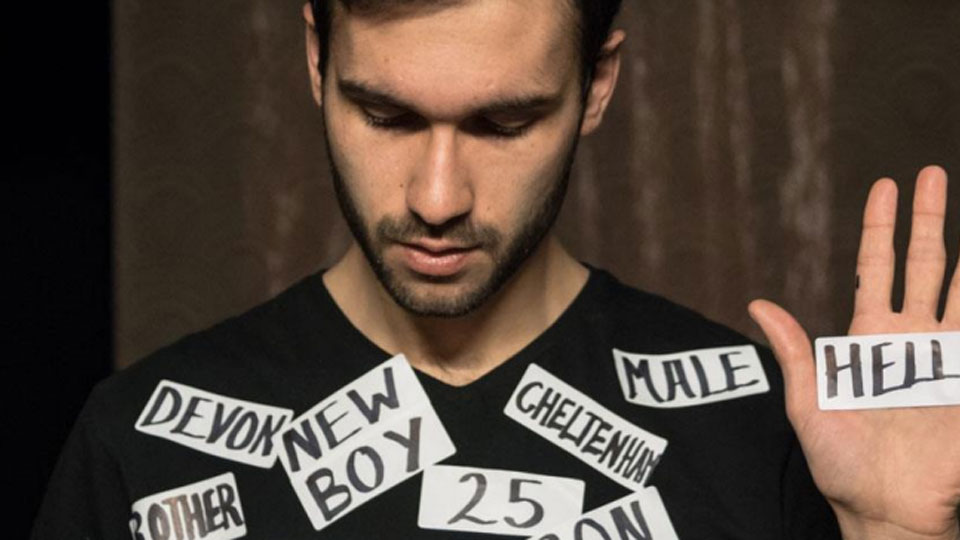
Worklight Theatre’s award-winning production Labels is opening this April at Theatre Royal Stratford East. It draws on writer and performer Joe Sellman-Leava’s experiences of having mixed heritage to explore broader issues of racism, immigration and displacement. The show examines how we use words, the line between curiosity and fear, and the rise of anti-immigration rhetoric. We caught up with Joe to learn more.
Labels was shortlisted for Amnesty International’s Freedom of Expression award. Was that a proud moment for you?
Incredibly proud. Amnesty do incredible, vital work in human rights around the world, and to be acknowledged by them for our work was very special.
Apart from a suitcase full of props, you’re on stage alone for 60 minutes. Is that daunting?
Sometimes! Even though the show has toured a fair bit already, each time you’re having to forge that connection with a new audience, and the make-up and reactions of that audience are always different. And without other performers to react with and bounce off, it feels sometimes like a safety net isn’t quite there!
In a particularly moving part of the show, you take on your father’s voice to recount the racism he experienced on arriving in England. Were you aware of your parents’ experiences before writing Labels, or were these stories you uncovered as you researched and created the show?
A mixture of both – when I wrote the concept initially I used stories they’d told me sporadically throughout my childhood. With the moment you’re referring to, Dad’s stories came from the research I was doing when my parents knew I was reworking the show for Edinburgh Fringe 2015. I had some wine with both of them and we reminisced on lots of things: good, bad, funny and sad. Dad opened up a lot and was very candid about some experiences I’d never heard before. Both of them gave such a lot to the show, very trustingly.
Do you think creating labels and putting people in boxes is a natural human instinct? Is it something that society can overcome?
It is in part human instinct. But part of being human is also in how we manage and act on those instincts. So yes, we can – and have – overcome some of the hugely negative impacts of labelling people. But it remains the case today that if we use words or numbers to describe people as less than human, it makes it easier for them to be treated as such.
One of the aims of Worklight Theatre is to interrogate the world around us through tools such as puppetry, lighting and movement. How important do you think this kind of theatre is?
It’s obviously important to us to be making this kind of work, as it’s what excites us and challenges us artistically. Personal tastes and biases aside, I do believe it’s important for theatre and other art forms to be interrogating the rapidly changing world we live in, because it’s a vital way to understand, question and discuss these things in a more public space.
The refugee crisis in Europe and the threat of Britain leaving the EU are at the forefront of the news every day at the moment. Do you think we’re reaching something of a crossroads in Britain as to what kind of a nation we are?
Yes. Though Britain isn’t alone in this. Globalisation and technology have made us more connected in lots of ways, yet much more isolated in others, and I feel like it’s become easier to distance ourselves from people we see as “other.” These things have also created huge inequalities and environmental problems, which play no small part in the conflicts and displacement of people we see around the world. You can see a global trend in the politics of fear if you look at recent and forthcoming elections in Britain, Europe, Australia and the USA, to name but a few. Elections where prejudices and divisions are exploited for all they’re worth, and where blaming an “other” seems an easy solution.
Your show brilliantly mixes the personal and the political, both challenging and entertaining the audience. How hard is it to strike that fine balance?
Thank you! It was very hard! I worked on shaping the text with Katharina Reinthaller, who is both dramaturg and director for the show. We knew we wanted to use the lightness and humour as ways to draw people in and connect with them, allowing the darker moments the space and attention they need in order to land. But finding this in a shape and structure that worked for the whole piece took a very long time – many hours poring over scraps of paper, agonising about what to cut, what to change and what to keep.
Labels started out life in a workshop about racism and equality, run by the actor and activist, Emma Thompson. How vital has Emma’s support been, and has she seen the show?
Emma sent a very supportive email after reading an early draft of the new script, at a time when Labels wasn’t known, reviewed or even close to being finished. To have the encouragement and support from a writer and actor I respect so much was an incredible boost. It was also really kind of her to let us include a quote on our marketing.
As a writer, actor and director, you set out to move your audience. But which piece of art has inspired you the most?
I would have to Spalding Gray’s Swimming to Cambodia. It’s not for everyone, but personally I love the way he interweaves stories and brings images and memories alive with small gestures and repeated scores. I also love the way he mixes the personal and political elements of these stories.
What was the best thing (if anything) about growing up in Cheltenham in the 90s?
I loved going to Pittville Park, Slimbridge Wildlife Centre, and have very fond memories of Churchdown Junior School. To be honest, the best memories are playing Super Mario and watching (pretending to be) Power Rangers with my brother Ross in the council flat we lived in!
And, finally, can you tell us anything about what you’ve got planned next?
Worklight are currently researching and developing our show about addiction, called Fix. I’m also writing another play as part of Soho Theatre Writers’ Lab course. And Labels will be touring the UK and beyond for some time to come!
Alexandra Newson
Labels is on at Theatre Royal Stratford East from 5th until 30th April 2016, for further information or to book visit here.

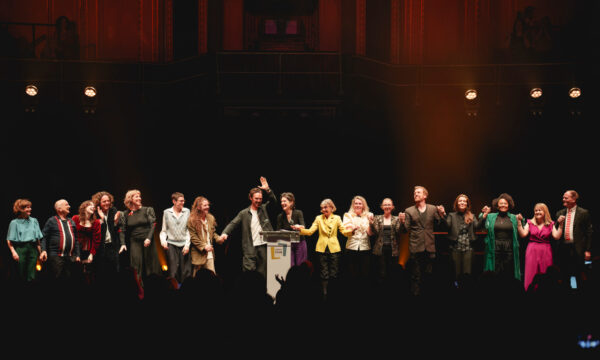
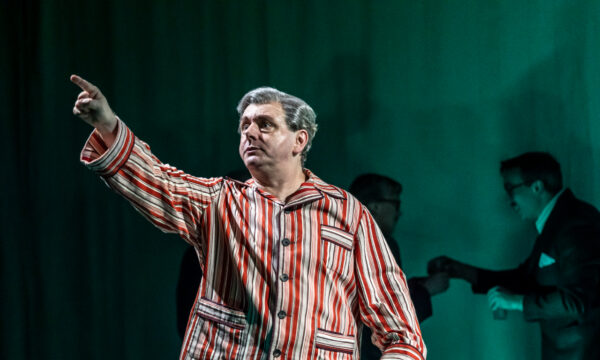
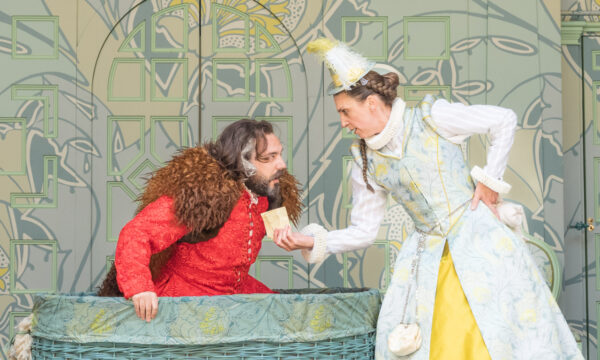
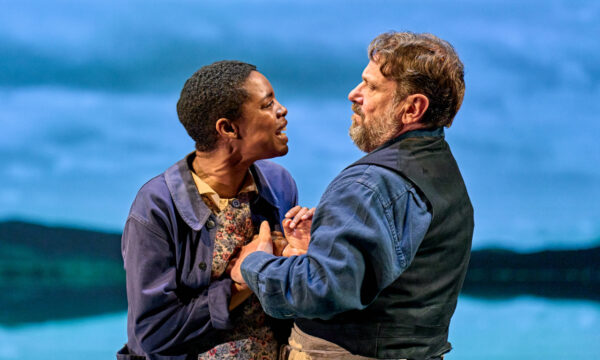
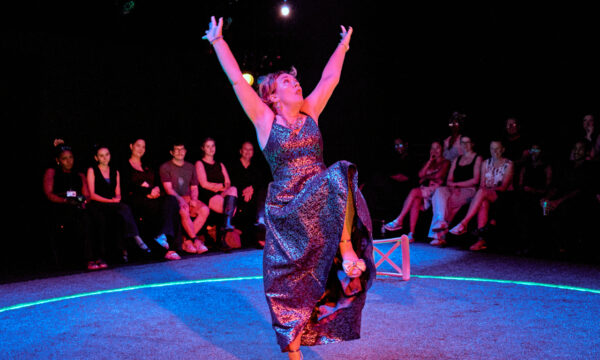
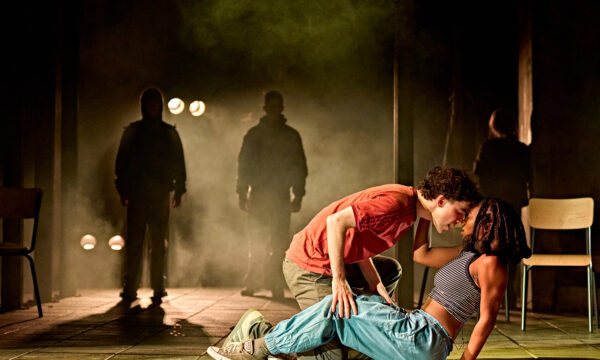
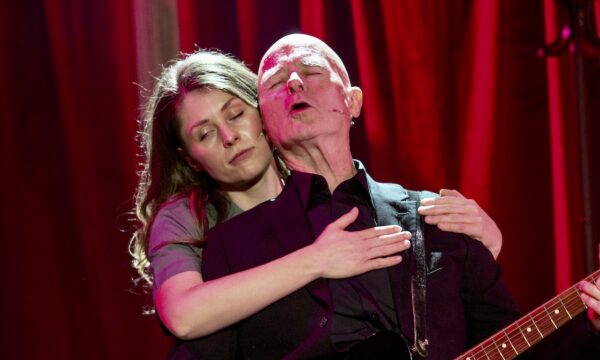
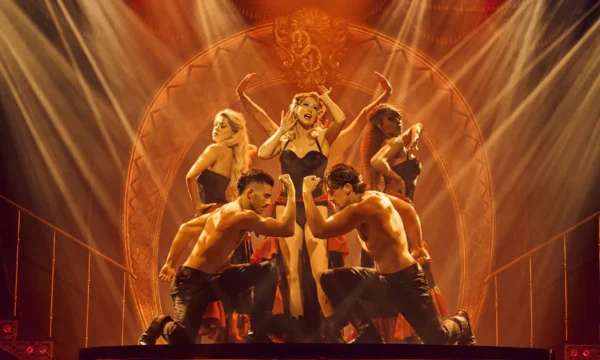
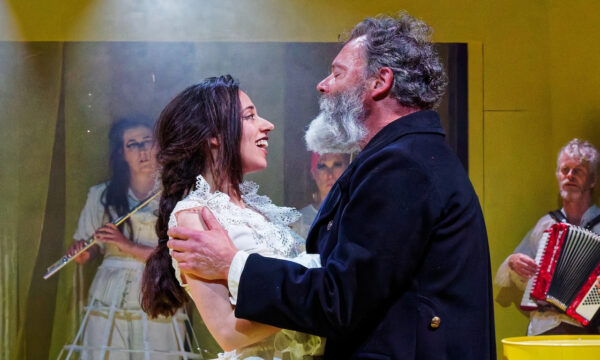
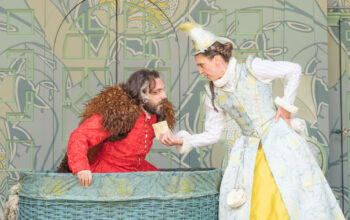
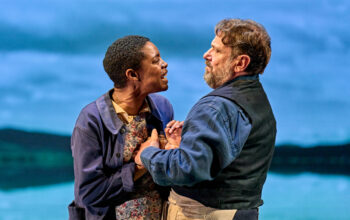
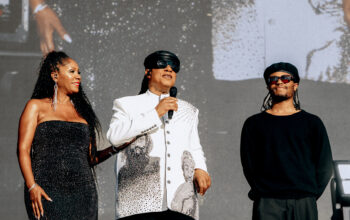
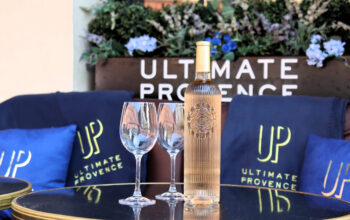
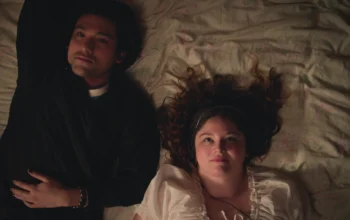
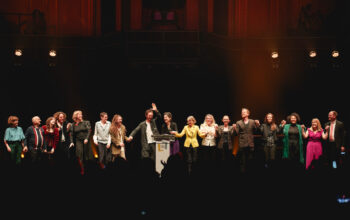
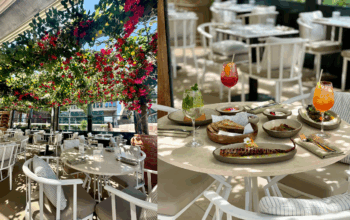
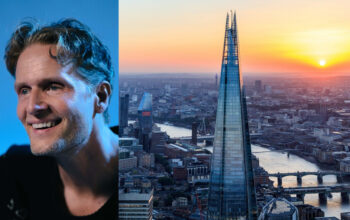
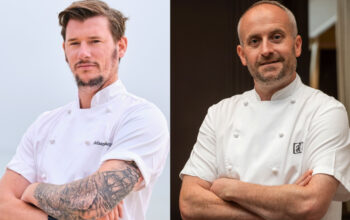
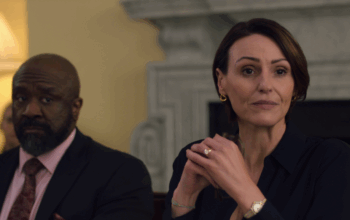


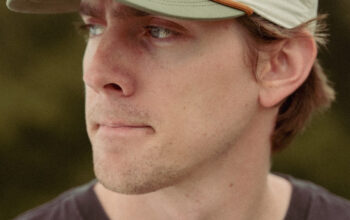

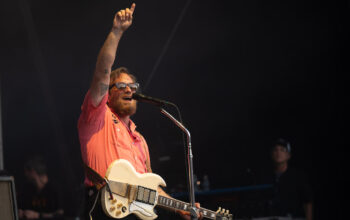
Facebook
Twitter
Instagram
YouTube
RSS